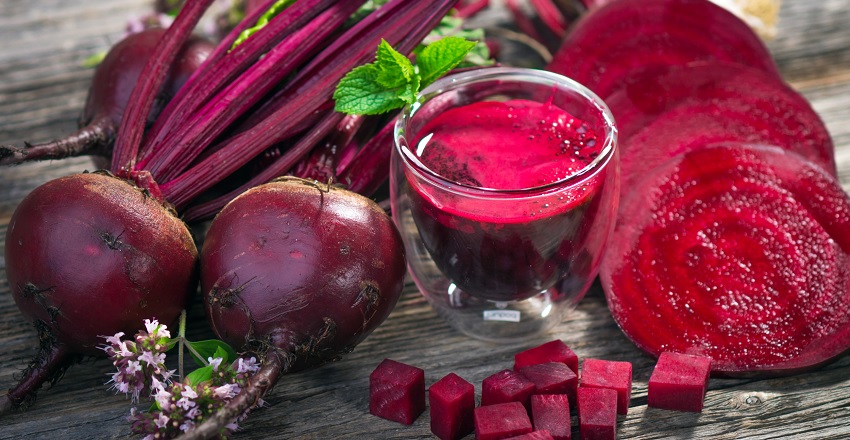Beetroot in Ayurveda: A Blood-Purifying Elixir
Beetroot, known in Ayurveda as “Palāndu” or “Beet Rasa,” is revered for its deep red hue and natural ability to purify the blood, improve stamina, and enhance liver function. While modern nutrition hails it as a “superfood,” Ayurveda recognized its potency centuries ago — not just for nourishment, but for balancing specific doshas and improving ojas (vital energy).
Ayurvedic Potency (Veerya) of Beetroot
- Rasa (Taste): Madhura (sweet) and Tikta (slightly bitter)
- Guna (Qualities): Snigdha (unctuous), Guru (heavy)
- Veerya (Potency): Ushna (slightly heating)
- Vipaka (Post-digestive effect): Madhura (sweet)
This combination makes beetroot rejuvenating, blood-building, and detoxifying — but it must be consumed wisely according to one’s prakriti (body constitution).
How to Eat Beetroot as per Ayurveda
1. Cooked, not raw:
Raw beetroot can aggravate vata and cause bloating or gas due to its rough, fibrous nature. Ayurveda advises eating it lightly steamed, boiled, or sautéed in ghee with cumin and black pepper to balance its heaviness.
2. With digestive spices:
Combine beetroot with jeera (cumin), hing (asafoetida), or dry ginger to improve digestion and prevent mucus formation.
3. Beetroot juice:
If taking as juice, have it mid-morning, diluted with water and a pinch of black salt or lemon, never on an empty stomach. Avoid refrigerating it — consume fresh.
4. In moderation:
Due to its guru guna (heaviness), it should not be consumed daily or in large quantities, especially by those with sluggish digestion.

Benefits of Beetroot in Ayurveda
1. Purifies Rakta Dhatu (Blood):
Its deep red pigment naturally enhances hemoglobin and helps remove ama (toxins) from the bloodstream.
2. Supports Liver Function:
Acts as a natural yakrit shodhaka (liver cleanser), aiding in bile secretion and fat metabolism.
3. Improves Stamina and Strength:
The madhura rasa and madhura vipaka nourish ojas, improving vitality and endurance.
4. Enhances Skin Glow:
By purifying the blood and aiding detoxification, beetroot imparts a healthy glow and clears blemishes.
5. Balances Kapha and Pitta (in moderation):
Its slightly heating and cleansing nature can balance Kapha, while its sweetness soothes mild Pitta when not overused.
Who Should Avoid or Limit Beetroot
Pitta-dominant individuals: Those prone to heat, acidity, nosebleeds, or skin eruptions should limit intake as its ushna veerya (heating potency) may aggravate Pitta.
Diabetics: Beetroot’s natural sweetness can raise blood sugar if consumed excessively.
Those with sluggish digestion or Kapha imbalance: Its heavy nature can increase mucus and slow metabolism.
People prone to kidney stones: Beetroot contains oxalates that can worsen such conditions.
Ayurvedic Tip from Anammyaa Wellness
For daily wellness, enjoy a small bowl of warm, spiced beetroot sabzi cooked in ghee with cumin and coriander — it purifies the blood, nourishes the body, and balances the doshas when consumed mindfully.
Anammyaa Wisdom:
“Ayurveda teaches not just what to eat, but how and when to eat — beetroot is medicine when cooked with awareness.”



